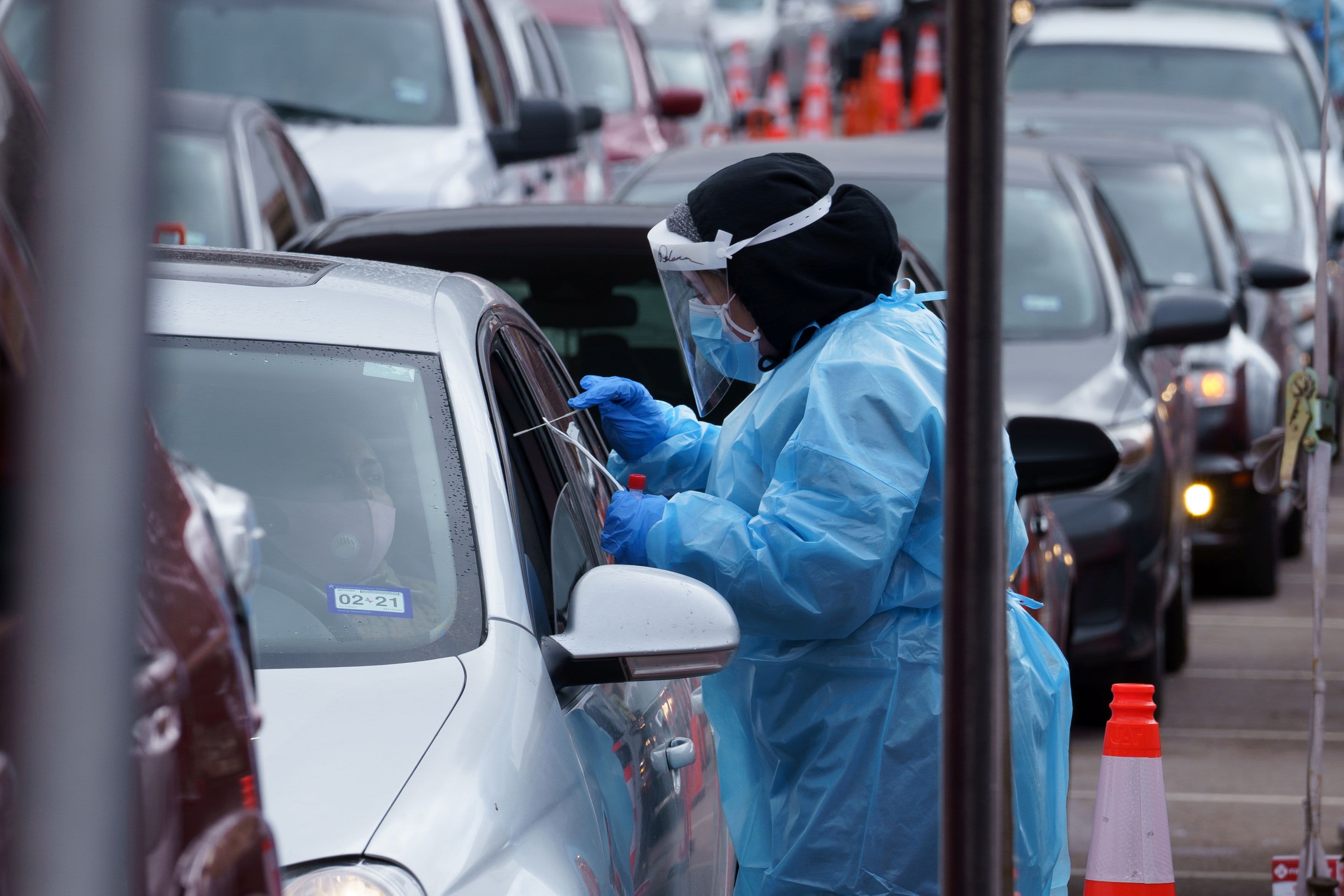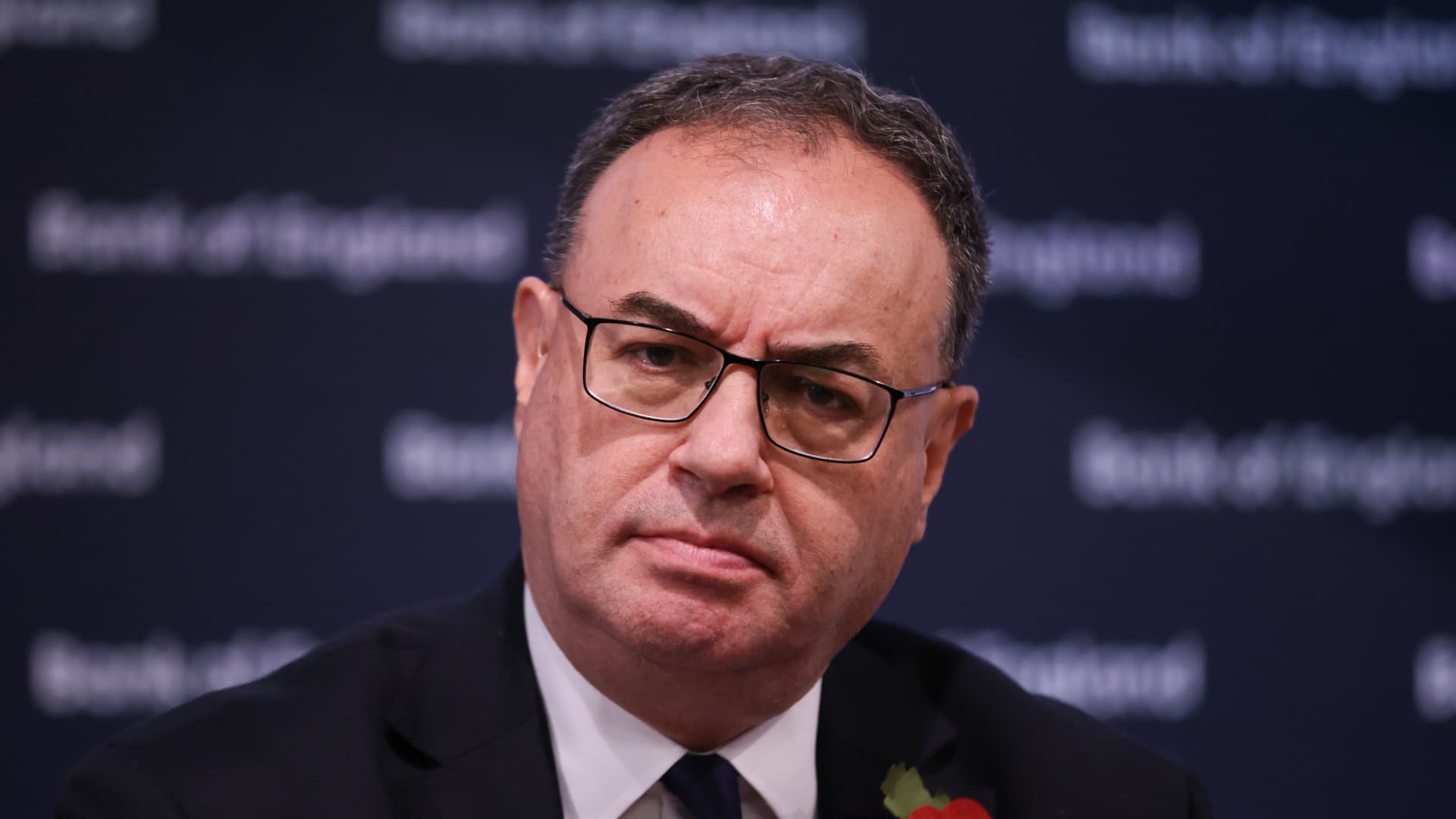Dow drops more than 400 points on fears rising coronavirus cases could slow down economic recovery

Stocks fell sharply on Wednesday as investors worried that the latest increase in coronavirus infections could halt the global economic recovery.
The Dow Jones Industrial Average dropped 455 points, or 1.7%. The S&P 500 dipped 1.8% and the Nasdaq Composite traded 2% lower.
Daily U.S. coronavirus cases have risen by a record average of 71,832 over the past week, data compiled by Johns Hopkins University showed. Meanwhile, coronavirus-related hospitalizations are up 5% or more in 36 states, according to data from the Covid Tracking Project.
This uptick has led some countries to reinstate certain lockdown measures. In the U.S., the state of Illinois has ordered Chicago to shut down indoor dining.
“I think there’s going to be a call for lockdowns the likes of which we’ve seen in Chicago,” CNBC’s Jim Cramer said Wednesday. “The lockdowns without the stimulus equals what we’re seeing.”
“It’s a shame because, had there been stimulus, we’d then be focusing on earnings and the earnings are actually pretty darn good,” he said.
Stocks that would be hurt most by lockdowns or a slowdown in the economy reopening were hit in premarket trading. Shares of Delta Air Lines fell 2%. Royal Caribbean shares lost 3.9%.
European equity markets were also under pressure. The German Dax index dropped nearly 4% and the French CAC 40 slid 3.4%. The FTSE 100 in London fell 2.3%.
Investors turned to bonds in their search for safety. The 10-year Treasury note yield fell to 0.75%. The Cboe Volatility Index (VIX), known on Wall Street as the market’s “fear gauge,” jumped above 37 and hit its highest level since Sept. 4.
“Uncertainty about COVID-19-related mobility restrictions and US politics mean we should expect volatility to remain elevated for the balance of the year,” said Mark Haefele, chief investment officer for global wealth management at UBS, in a note. “However, we continue to see upside over the medium term.”
“With ten vaccine candidates in late-stage trials globally, our central scenario is that restrictions can start to be lifted by 2Q21, helping corporate earnings recover to pre-pandemic highs by around the end of 2021,” he said.
Dimming hopes for another fiscal stimulus before the election have also weighed on the market.
Earnings
Wall Street also pored through the latest batch of corporate earnings for the previous quarter, including those of tech giant Microsoft.
Microsoft reported better-than-expected earnings and revenue for the previous quarter as sales from its cloud business grew sharply. However, the stock dipped 2.7% on light revenue guidance.
“Redmond is continuing to see strength in the field as more enterprises move to the cloud,” Wedbush analyst Dan Ives said in a note. “This is a stark contrast to the earnings debacle we saw from mature software stalwart SAP earlier this week which highlights the clear winners and losers in this cloud shift with MSFT leading the way.”
Boeing reported a quarterly loss that’s narrower than expected, but the company said it plans to cut thousands of additional jobs through 2021 as it adjusts to the long-term drop in air travel demand.
Shares of General Electric gained more than 7% Wednesday after the company reported stronger than forecast revenues and a surprise adjusted profit for the third quarter.
First Solar also posted quarterly numbers that beat analyst expectations, sending its shares up about 10% after the bell.
— CNBC’s Yun Li contributed reporting.
Subscribe to CNBC PRO for exclusive insights and analysis, and live business day programming from around the world.




